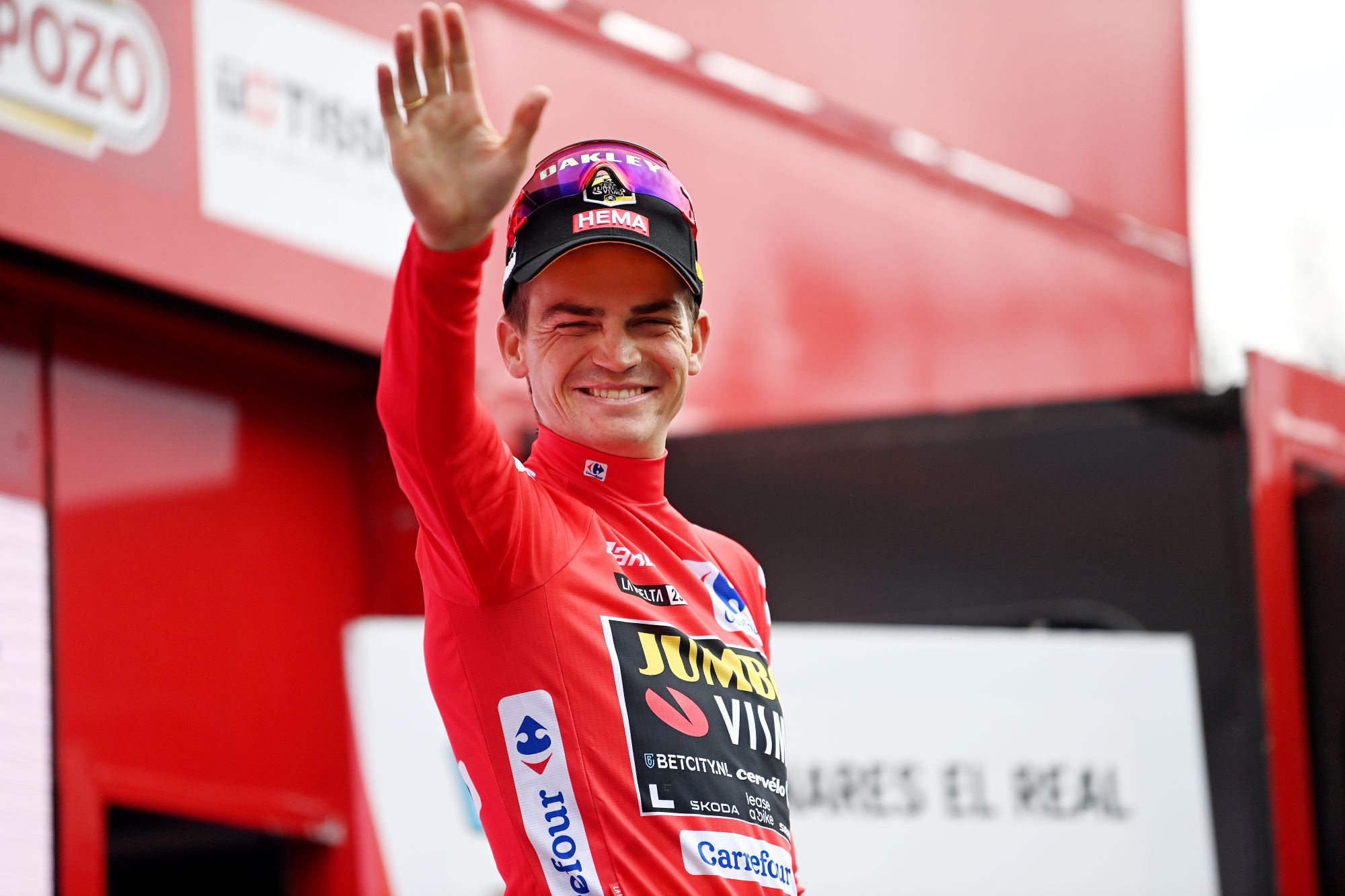
Rolling out from the start line of Vuelta a España’s processional final stage on September 17, arm-in-arm with Jumbo-Visma leaders Jonas Vingegaard and Primož Roglič, Sepp Kuss celebrated his equally well deserved and unexpected Grand Tour win. In winning the Maillot Rojo, Kuss became the first American to win a Grand Tour in a decade, and the second American ever to win the Spanish tour.
Kuss has long been celebrated for being one of the best climbers and helpers in the peloton, he’s been instrumental in the success of Vingegaard and Roglič but in Spain Kuss finally got a shot at his own glory and made it count - despite the team’s apparent unwillingness to see the race win go to its domestique instead of its leaders.
Cycling fans love an underdog story, and across the globe, cycling fans cried out over the team’s questionable antics, and squarely placed themselves behind "Team Kuss". Eventually, the team got its act together, and in the end, all three Grand Tour winners stood atop the podium in Madrid.
This victory not only marked a personal achievement for Kuss; it gave a glimmer of hope to American cycling. An ocean away, while Kuss wore red, Americans had woken up early week-after-week to cheer on their beloved yet unlikely hero. Memes and a GC Kuss hashtag circled the internet; Kuss stickers appeared on mailboxes and trailhead signs; posters appeared in bike shops and Kuss supporter tees were quickly printed up. Kuss' win particularly resonated in his hometown of Durango, Colorado, where he was welcomed back by thousands.
The U.S. hadn’t seen this kind of interest – let alone fanfare – around cycling since the days of he-who-must-not-be-named. Kuss’ victory offered a rare moment of hope at a time when American road cycling struggles with dwindling participation numbers and a lack of events in the U.S. Celebrated international races like the Colorado Classic, the Tour of California and the Tour of Utah have all folded in recent years due to lack of financial backing. Today, only four UCI races remain, none of which reach far beyond their local newspapers, let alone offer enough incentive for international stars to cross the waters.
Since that infamous Oprah Winfrey interview in 2013, American fans haven’t had a hero to get behind, and road cycling has been in steady decline.
Sure, American riders have been netting wins and making some impressive moves, but for America to pay attention to cycling, it needs a true hero. First it was Greg LeMond and then Lance Armstrong. Villain or not, no one can dispute that his victories and cancer story made him a household name and inspired tens of thousands of people to hop on a bike.
Could Kuss be this longed-for hero? Or perhaps it’s Neilson Powless, who sported the polka dot jersey in this year’s Tour de France for 13 days. Or maybe Matteo Jorgenson who so bravely hunted for a stage win on Puy de Dôme only to come up short.
Kuss and his fellow Americans generated a lot of excitement for fans in 2023, and should they be allowed to ride for their own opportunities in the coming season, Americans will eagerly watch on. Only watching may prove impossible. The momentum behind Kuss’ victory was cut short with the news of GCN+’s closure. The streaming service provided a vital link to the sport for fans in a country where cycling isn’t shown on mainstream television. Luckily, however, Max is stepping in to replace at least some of GCN+'s coverage. It'll just mean another subscription to sign up for.
So for now, road cycling in the U.S. staggers on, but there’s no denying that Kuss’ underdog story captured the hearts of Americans. It may just be a softly glowing ember for now, but it’s been some 15 years since we saw such an exciting contingent of American riders in the WorldTour. If they keep seizing the opportunities, there’s hope their ember can spark a fire in the hearts of American sports fans.







